Multilogin, an antidetect browser, has been around for years. Its reputation rests on stability and solid fingerprint masking, which once made it the default choice for running multiple digital identities. If you’ve been around digital marketing, e-commerce, or affiliate operations, chances are you’ve heard someone swear by it.
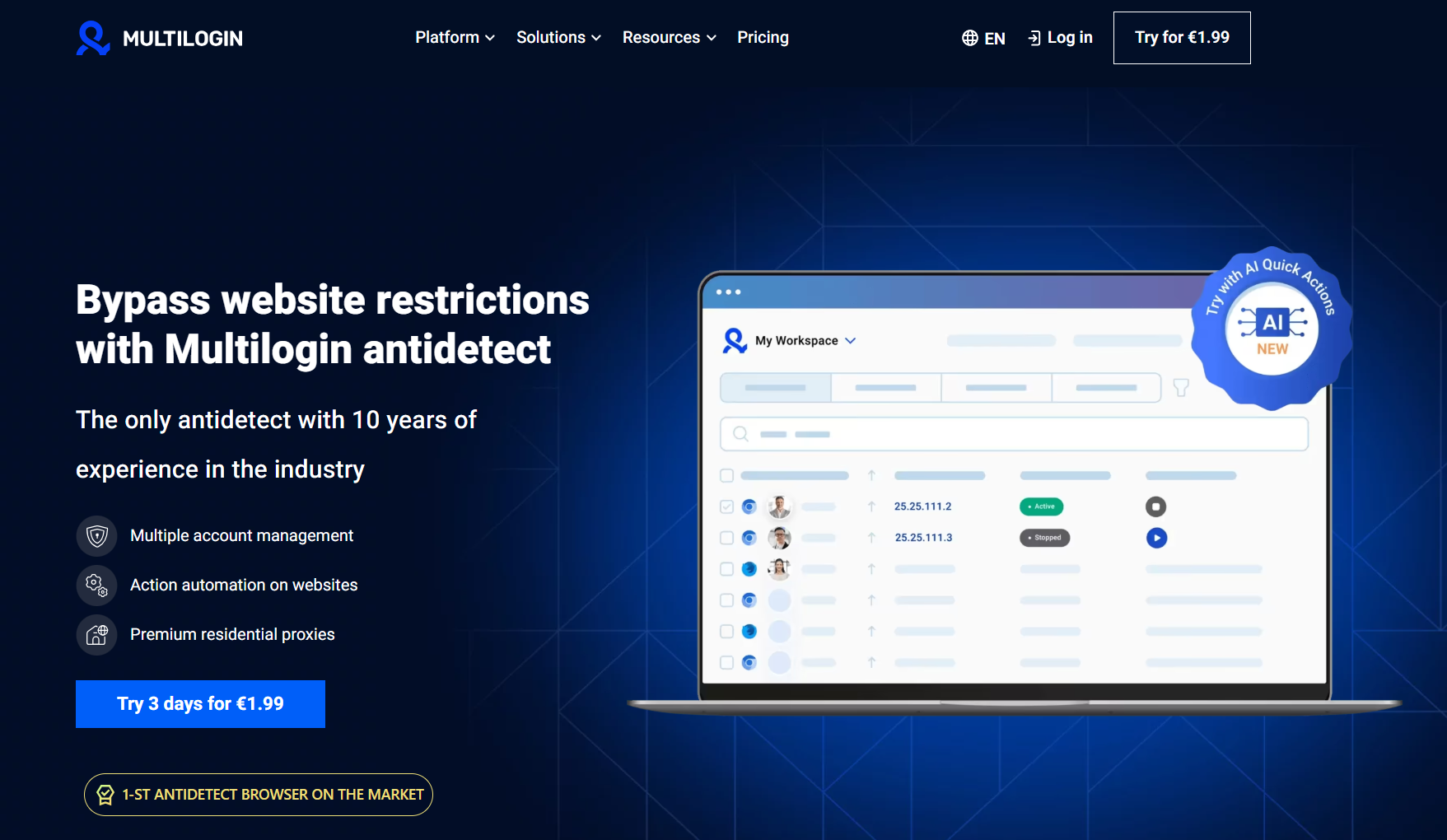
In this review, I took a closer look at how it performs in 2025. However, after spending time with it, I couldn’t shake the feeling that it’s stuck in its past.
As the market has changed, users expect more, and newer browsers are setting a higher bar, is Multilogin still a good choice in 2025? This review explore where Multilogin stands today, highlighting both its strengths and shortcomings.
Multilogin’s Pros and Cons at a Glance
| Pros | Cons |
|---|---|
| Stable core browsing performance | One of the most expensive browsers in the market |
| Long-standing reputation in antidetect industry | No free trial, pay before testing |
| Basic UI is simple for beginners | Outdated interface, weak for scaling |
| Suitable for enterprises with high-value operations | Limited team flexibility and no audit logs |
| Reliable for static, controlled use cases | Profiles may fail modern fingerprint checks |
Value for Money: High Cost, But Limited Features
Pricing is the first reality check with Multilogin. It’s consistently one of the most expensive antidetect browsers on the market. For example, a plan with just 10 profiles costs €9 per month, and a 50-profile plan jumps to €49 per month. Yet what you get for that price feels limited.
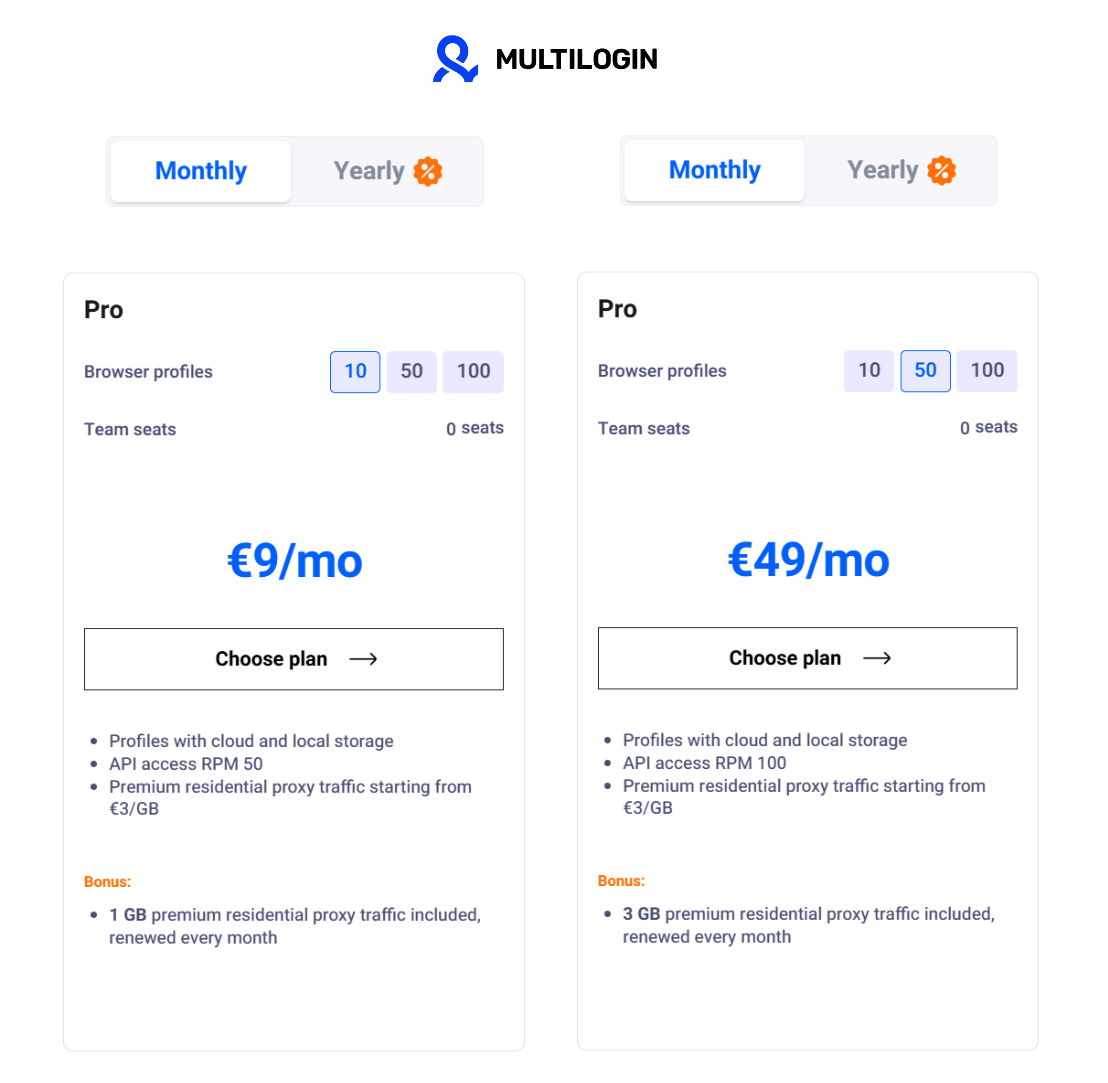
Compare that with RoxyBrowser, which offers more functionality at a lower cost: for $8 per month, you get 15 profiles, and with roughly $45, you can subscribe to a 90-day plan that includes 55 profiles.
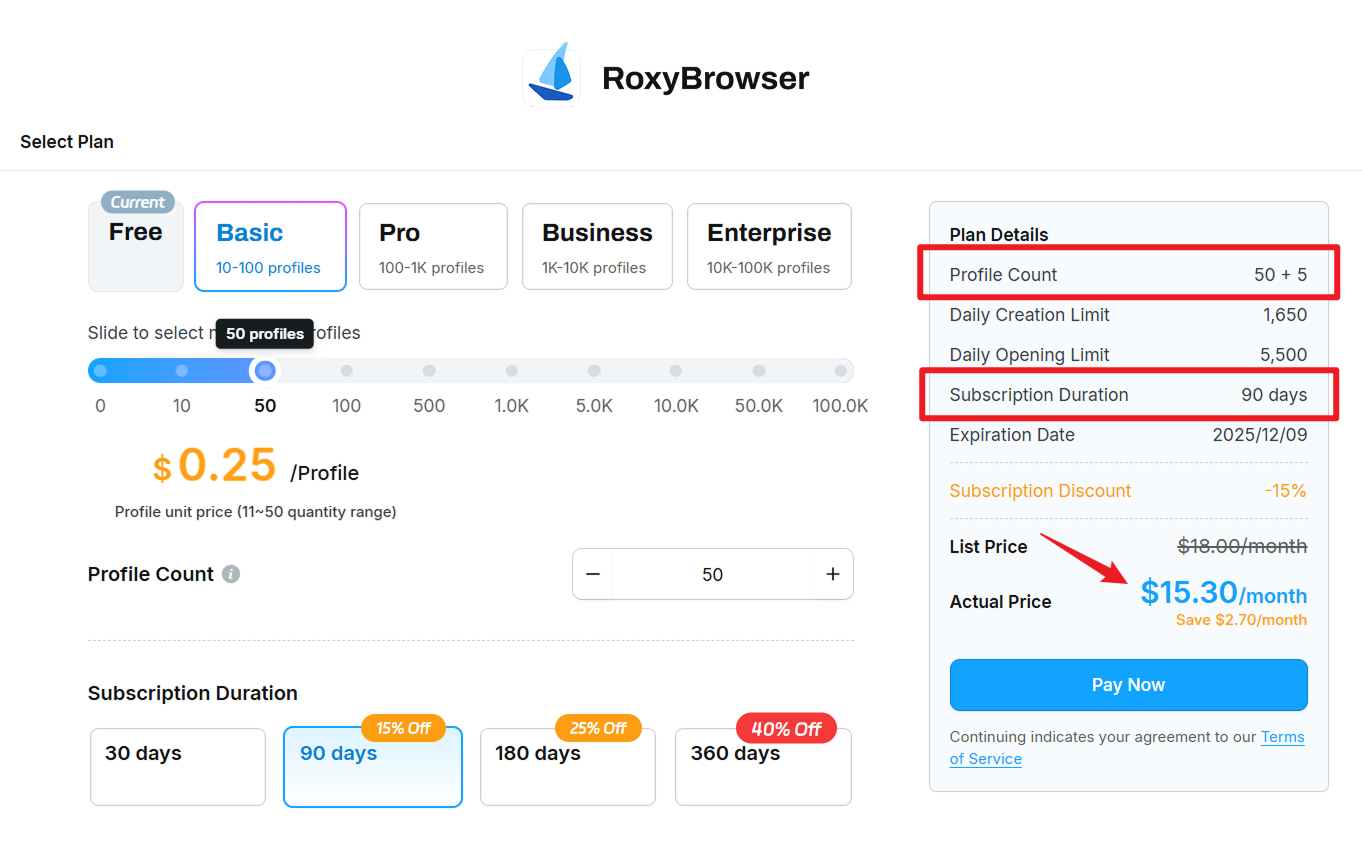
This significant gap in value makes Multilogin hard to justify for small businesses or freelancers, and even larger teams may question whether the expense reflects real-world utility. Paying premium rates should unlock convenience and power, but with Multilogin, the cost-to-function ratio simply doesn’t add up.
Performance and Reliability: Solid but Not Untouchable
Multilogin’s strength has always been its stability. For basic use cases, it delivers. Profiles launch consistently, and the browsing experience feels smooth. On paper, it’s still a reliable antidetect browser.
But the cracks appear when you look closer. Independent tests show Multilogin profiles can fail on certain fingerprint detection tools. That may sound minor, but for users who rely on staying completely undetectable, it’s a dealbreaker. Stability matters, but if the mask isn’t flawless, trust erodes quickly.
For seasoned professionals, this means double-checking everything. Instead of trusting the brand’s reputation, you end up verifying profiles against detection tools yourself. That added burden chips away at the confidence Multilogin is supposed to deliver.
Usability and User Experience: Clean, but Outdated
The user interface is simple. In fact, that’s the word most often used to describe it: “clean” and “easy.” For beginners, that’s fine, as you can get in and start working without feeling overwhelmed.
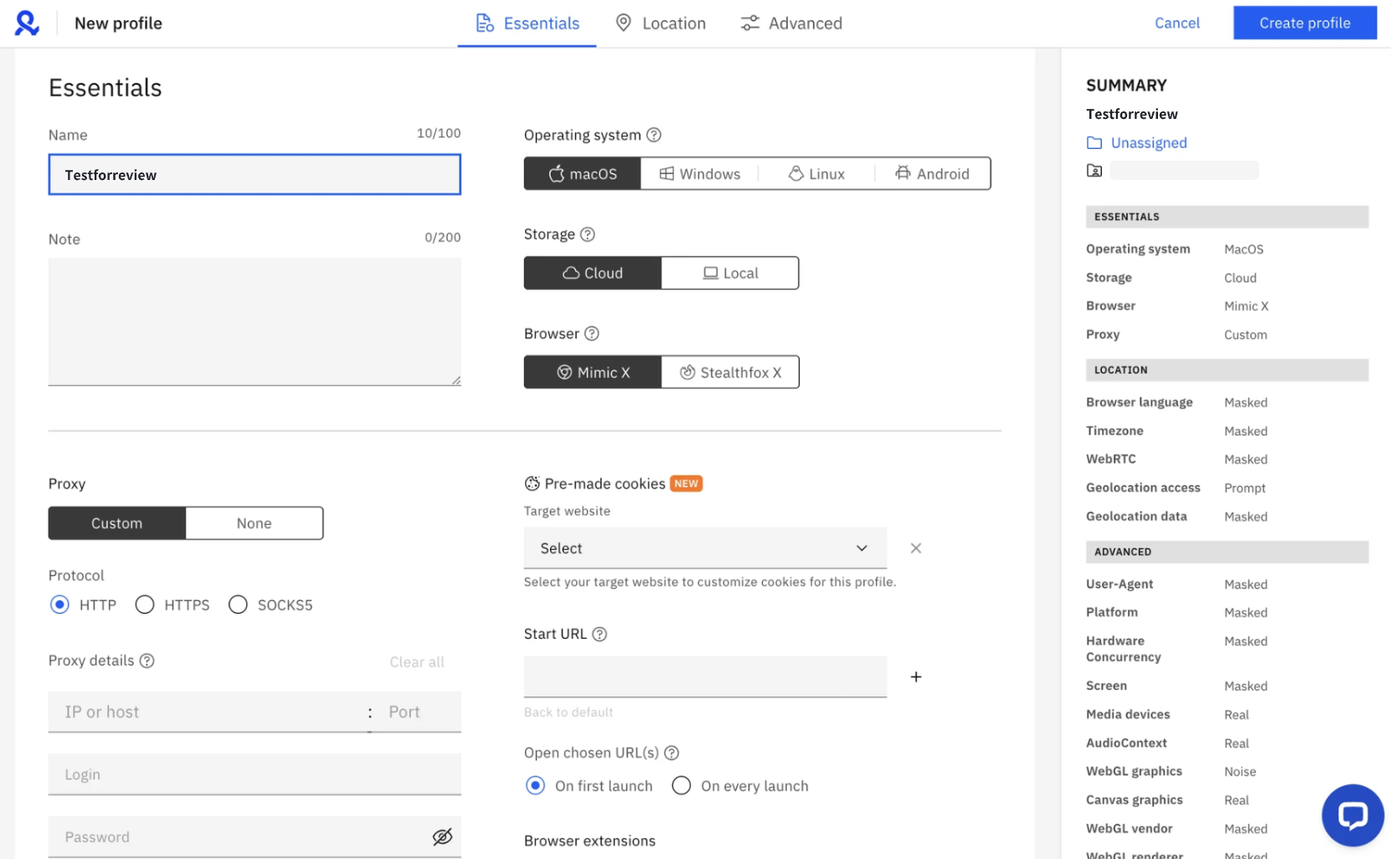
The problem is scale. Once you start managing dozens or hundreds of accounts, simplicity turns into limitation. The profile table can’t be customized, so you’re forced to dig into each profile individually just to see proxy info or last-used data. Batch proxy management? Nonexistent. Bulk optimization? Forget it.
It’s the kind of design that feels stuck in 2018. For today’s professionals who expect flexibility and efficiency, Multilogin’s workflows become slow and frustrating. Time lost on repetitive manual tasks adds up fast.
Trial and Onboarding: Must Pay Before You Try
One of the most jarring things about Multilogin is the lack of a free trial. You can’t test the product properly without paying first. Even its short trial period comes with a price tag.
In a world where competitors hand out free plans or risk-free trials, this creates an unnecessary barrier. For new users curious about antidetect browsers, it’s discouraging. And for teams evaluating multiple tools, Multilogin is harder to justify when others let you explore at no cost.
RoxyBrowser: A Modern Antidetect Browser Worth Highlighting
While Multilogin leans heavily on its past reputation, some newer tools are reshaping what users expect. RoxyBrowser is one of those.
Customizable Profiles and Strong Fingerprinting
What immediately stands out is its strong and stable power of fingerprint masking. Profiles can be fine-tuned with more than 65 customizable parameters, from screen resolution to fonts and hardware details. For users with high anonymity requirements, this level of control offers a stronger and more realistic disguise compared to simpler setups.
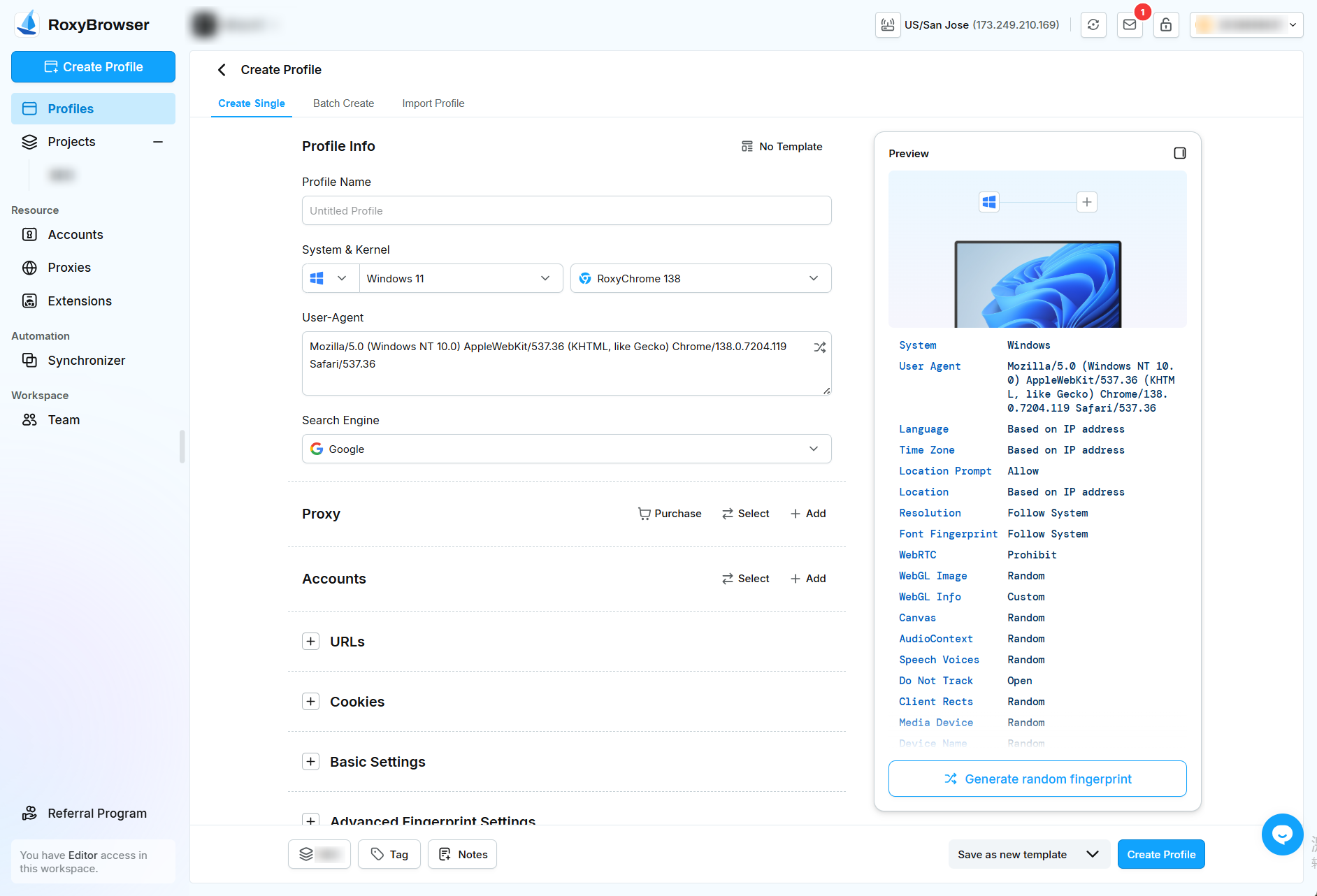
User Interface and Ease of Use
The interface is also designed with scalability in mind. Profiles can be grouped, tagged, and searched instantly, making it easier to organize and operate even when handling hundreds of accounts.
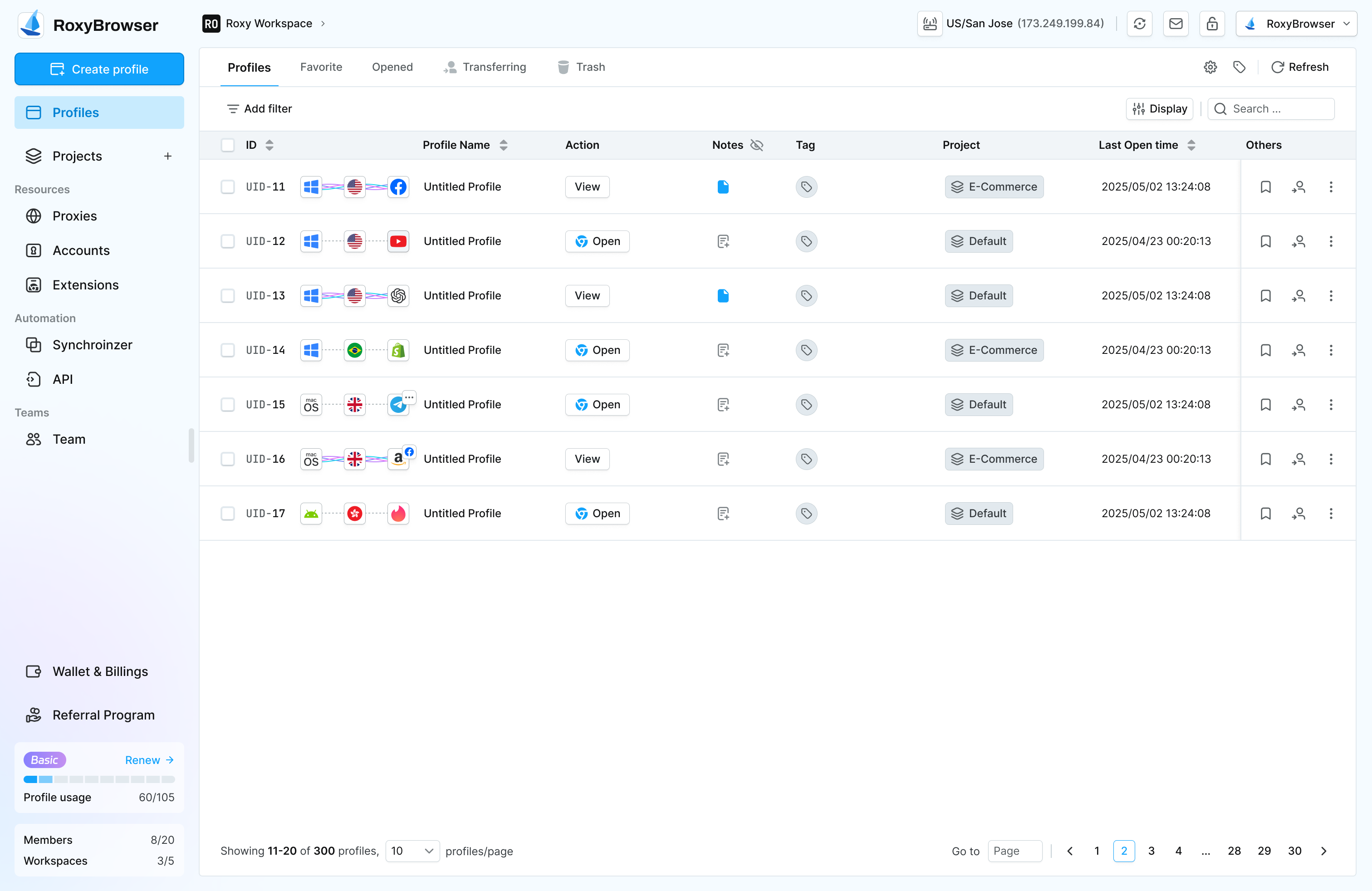
Flexible Pricing and Free Trial
On pricing, RoxyBrowser takes a more balanced approach. Instead of one rigid model, it offers flexible plans tailored to both individuals and enterprises. That way, solo users and large teams alike can find a structure that fits their needs without overpaying or feeling locked into an unsuitable tier.
New users even get 5 free profiles to test without commitment, something Multilogin doesn’t offer. For anyone cautious about diving in, that trial flexibility lowers the barrier dramatically.
In short, RoxyBrowser addresses the exact pain points that frustrate Multilogin users.
Who Multilogin Still Works For
Despite its flaws, Multilogin isn’t useless. If your top priority is stability and you’re operating in high-value, high-risk environments, it can still do the job. Enterprises that don’t mind the cost may find comfort in its long track record.
But for small businesses, agencies, or anyone who values modern workflows, affordability, and flexibility, it’s harder to recommend. The market has moved on, and Multilogin hasn’t kept pace.
Final Verdict
Multilogin is still standing, but it no longer stands tall. Its high cost, outdated interface, and lack of innovation make it feel like a legacy choice rather than a forward-looking one.
If you’re willing to pay for stability and trust tradition, Multilogin can serve its purpose. But if you’re searching for value and stronger functionality, this review shows that options like RoxyBrowser demonstrate just how much better antidetect browsers can feel in 2025.
